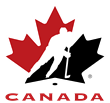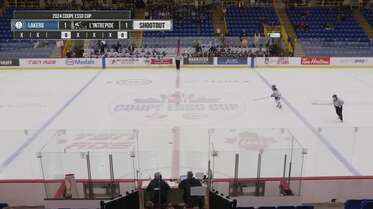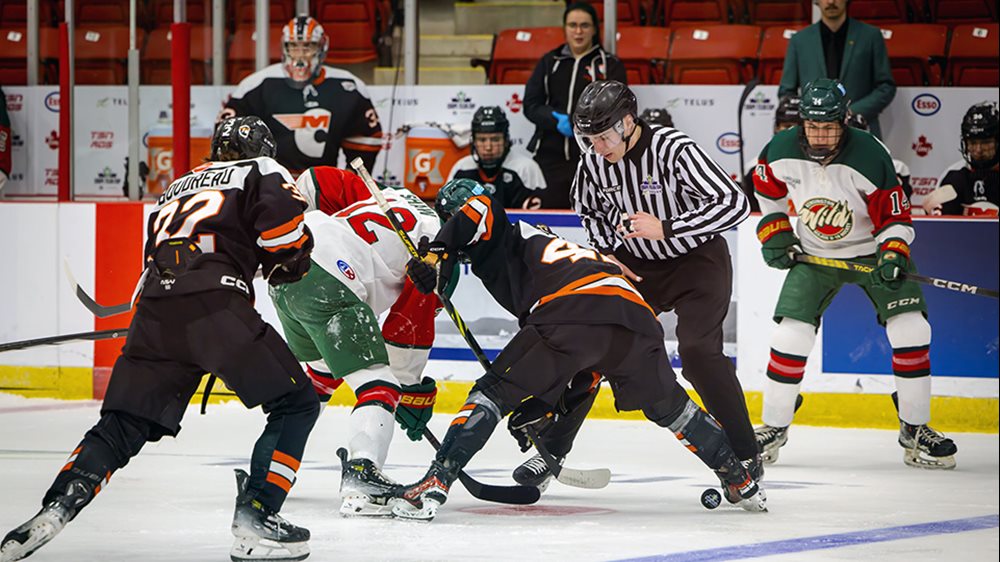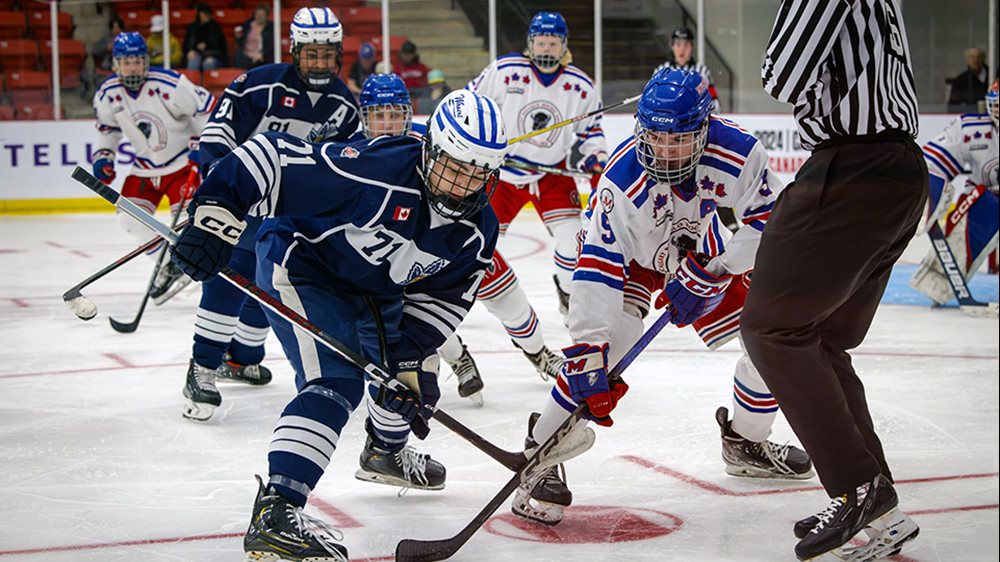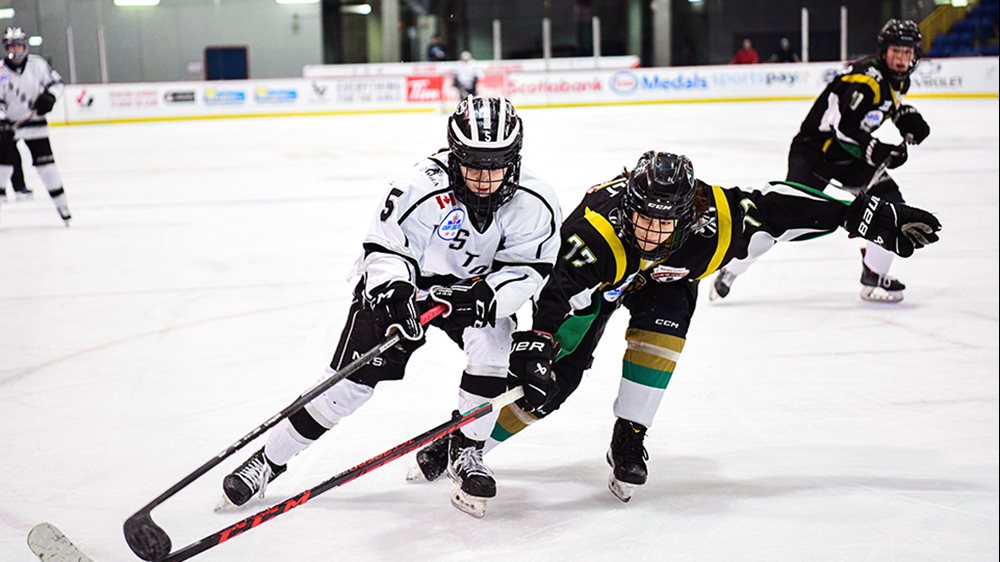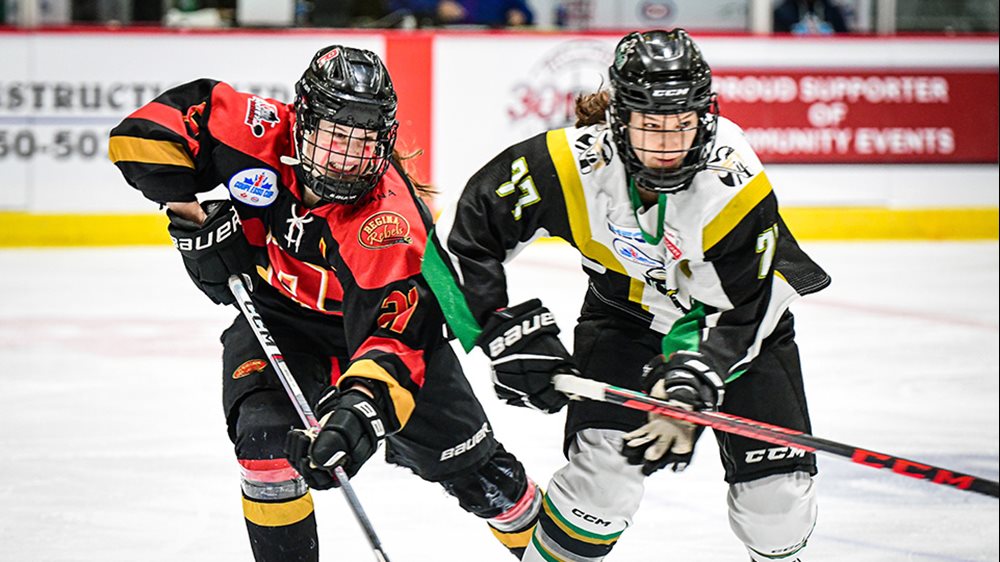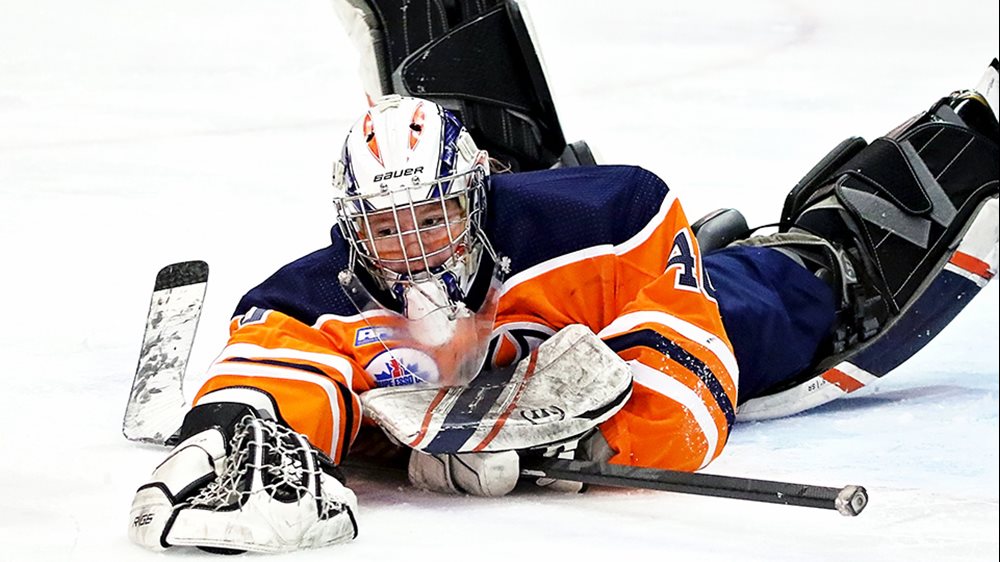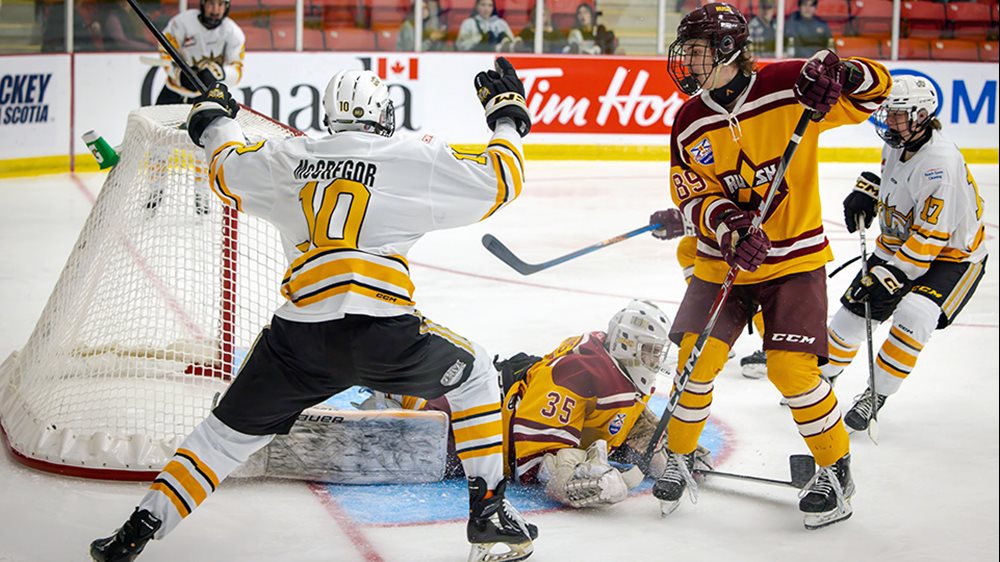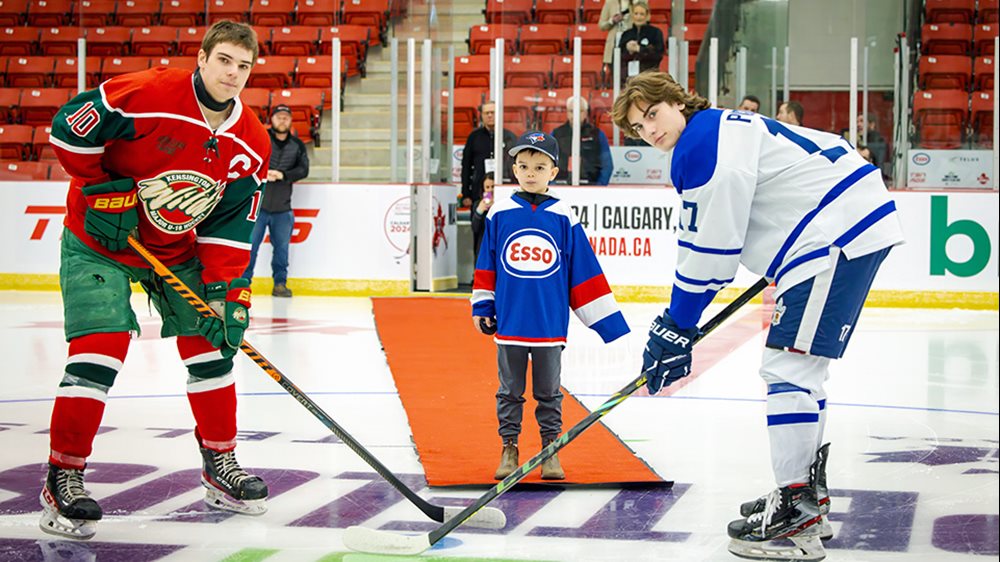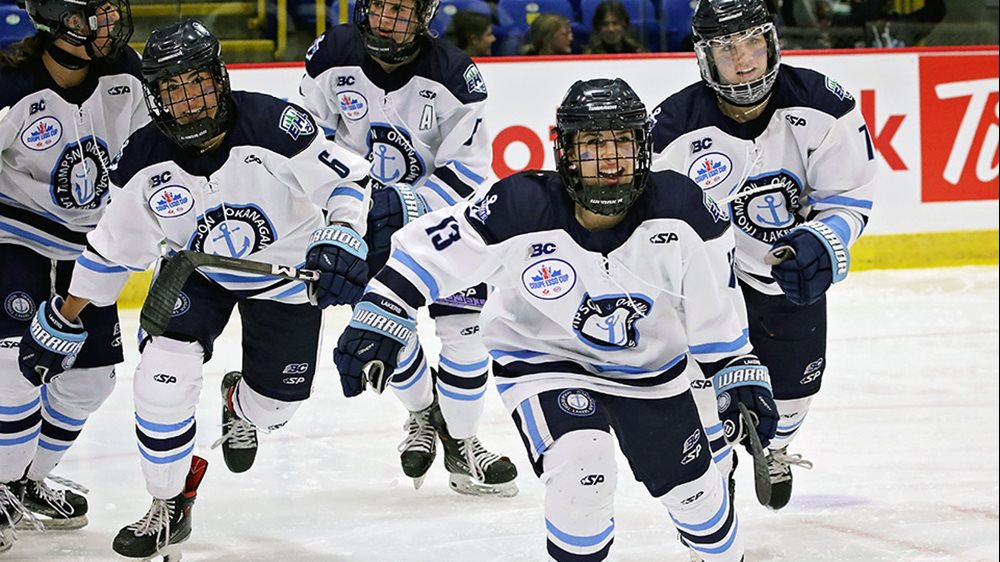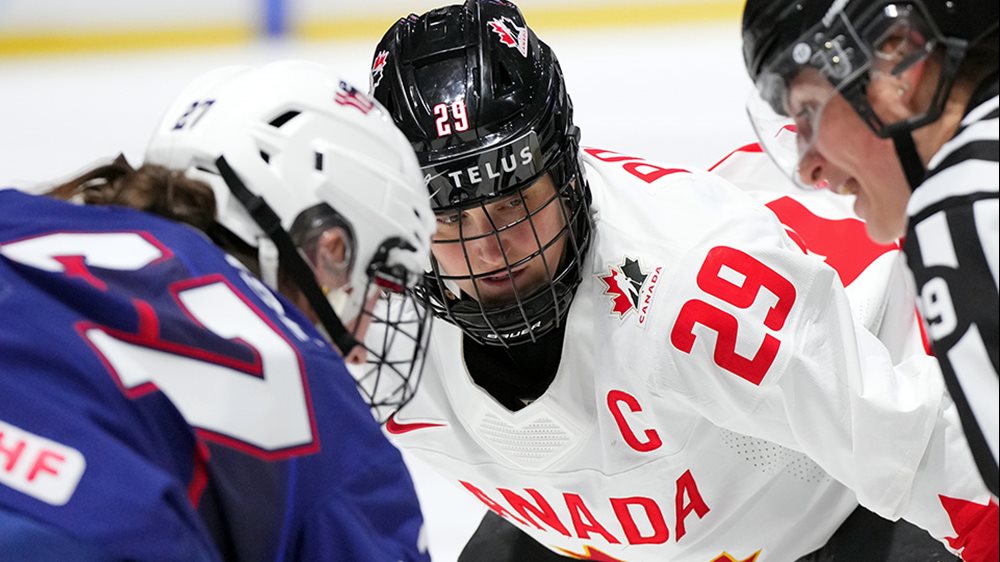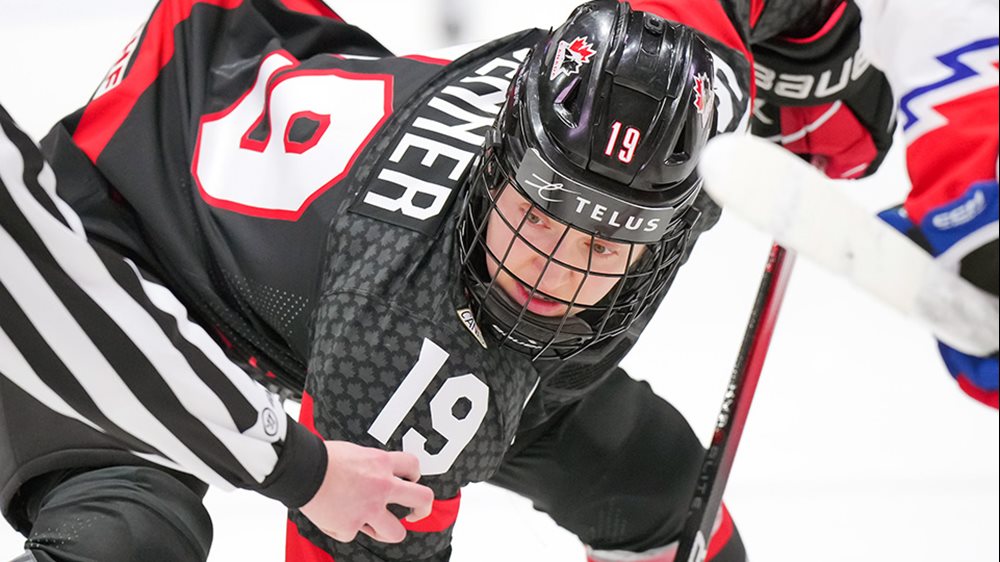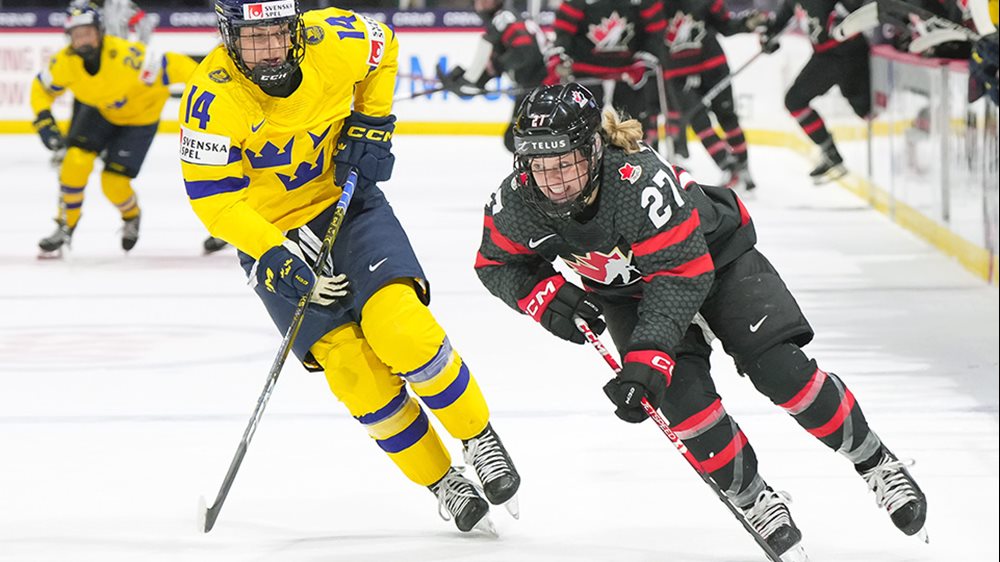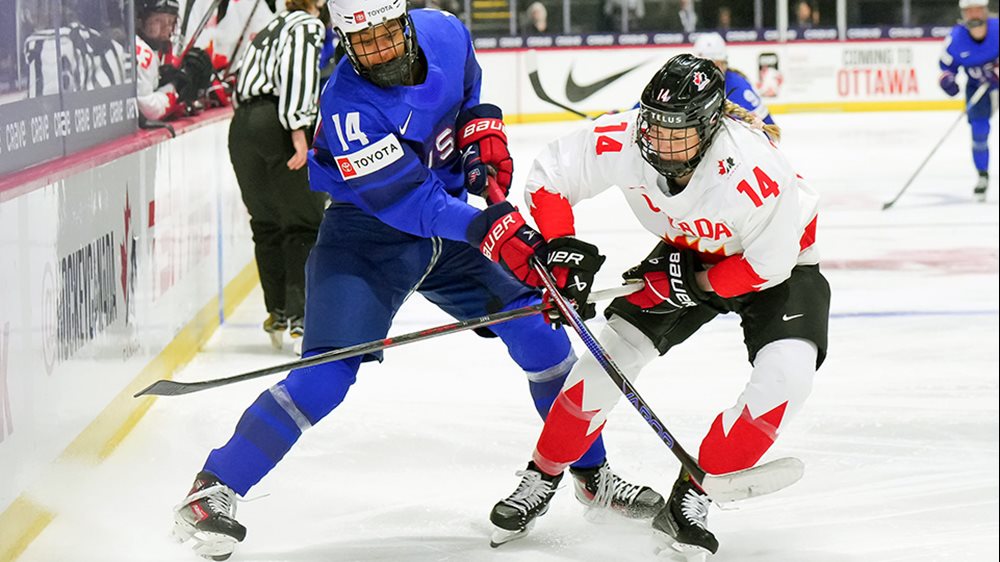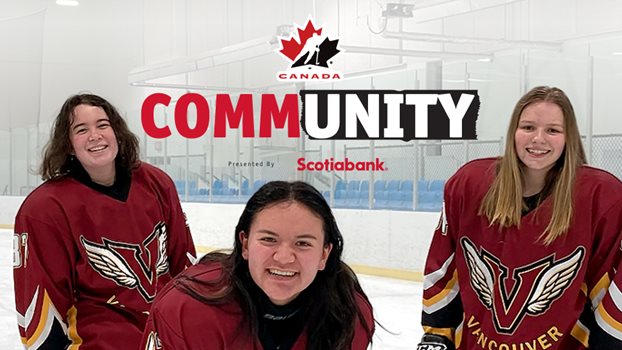
Coaching as friends
After meeting on the ice as teammates, Piper Hays and Hayley Palmer’s friendship grew stronger when they began coaching together with the Vancouver Angels
As defensive partners growing up, Piper Hays and Hayley Palmer have great chemistry on the ice. That chemistry jumped to a new level when the two 18-year-olds began their coaching journeys five years ago.
After becoming friends as teammates, they decided to become on-ice assistants with the Vancouver Female Ice Hockey Association (VFIHA) when they were just 13. Since then, they have continuously played on the ice together and coached younger girls with the Vancouver Angels.
“I always liked working with children,” Palmer says. “I just thought it would be nice to have younger coaches and female coaches, especially for a group of young girls.”
“It’s just nice to give back,” Hays says. “I think [the girls] get an extra kick out of seeing someone who’s older and still playing doing the same thing that they’re doing. They get to kind of see what they can achieve.”
Both Hays and Palmer had few women as coaches in their hockey careers until they reached the Vancouver Angels U18 team. Although they had positive experiences with men coaching them growing up, they found having a woman behind the bench fostered an even stronger relationship.
“The dynamic is just very different. It’s a lot more comfortable, a lot more open,” Hays explains. “I think it’s easier to take criticisms from people who understand where you’ve come from.”
The growth of women in coaching roles is an important mandate for the VFIHA. When James Nedila became president of the association in 2014, he says there were very few women coaching.
“They were like unicorns, we just couldn’t find them,” Nedila says. “It was a big gap in our coaching where we are a female hockey association but the vast majority of [our coaches] were male.”
The association launched several initiatives to increase the number of women coaching, including mentorships and support for unexperienced coaches and encouraging graduating players to return to the game to coach. Their efforts paid off, and Nedila says people now routinely reach out their association to coach and volunteer.
The hockey community has also flourished with more women actively involved in hockey.
“The culture that we built in this association has definitely improved because of representation,” Nedila says. “It feels like a more inclusive place, it feels like a place where people can help out and see the impact of their efforts immediately.”
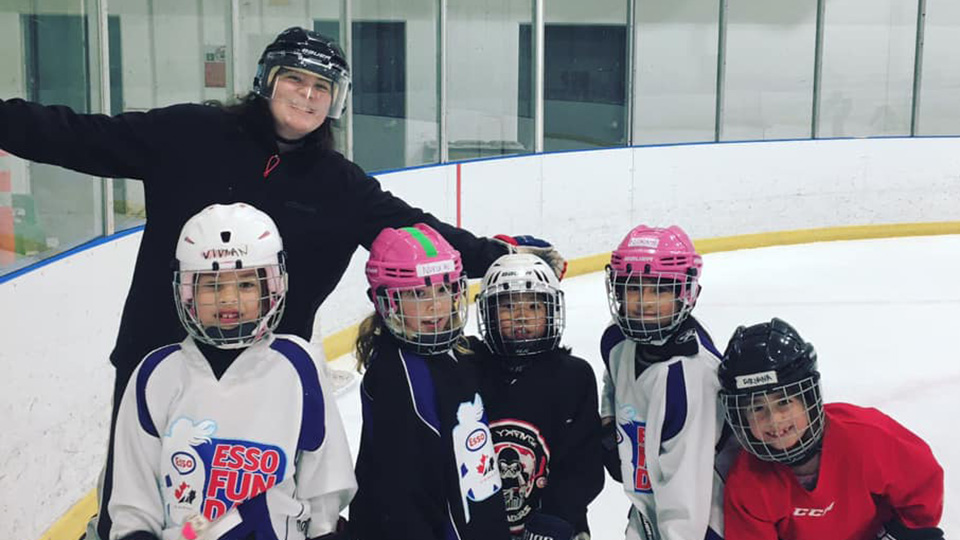 Piper Hays coaching with the Vancouver Angels. (VFIHA)
Piper Hays coaching with the Vancouver Angels. (VFIHA)
After two years as on-ice assistants, Hays and Palmer took a coaching course to become assistant coaches. Although they were the youngest and only girls in the room back then, they have both noticed an influx of women getting involved in hockey as coaches and volunteers.
“I think it’s just very important that more and more girls play, more and more people coach, because there’s so many people that you want to have represented,” Palmer says.
“The way things are going, it’s been pretty exponential growth,” Hays says. “I’m hoping for at least 50% female coaches [in hockey in the future], which I know seems like a pretty big, drastic number. But there’s a lot of untapped potential right now, and I think once we get this steam train going, I don’t think it’s going to stop for a while.”
The increase of women has also had a large impact on the young players, too.
“I have had girls tell me they want to coach when they’re older,” Palmer says. “It’s great because I think they definitely see it as more of a possibility when they see like me or Piper versus if they see like their dads or their parents coaching.”
The feedback from parents about Hays’ and Palmer’s coaching has been overwhelming positive from parents.
“Their attitude is infectious. It has an effect on everybody around them,” Nedila says. “It’s good to see that feedback reflected back at them to say you know what, you guys are really doing a great job.”
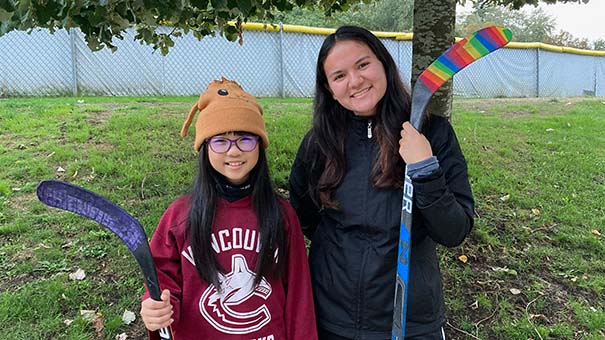 Hayley Palmer with a Vancouver Angels player she coaches.
Hayley Palmer with a Vancouver Angels player she coaches.
A new chapter in their coaching journeys began this fall with Hays and Palmer beginning university. Hays left Vancouver to attend the University of Toronto, but she already has started building connections in Ontario to continue coaching.
“It’s an interesting transition,” she says. “I think bringing that sort of experience into a new team is going to be pretty important just because I want to provide that sort of energy and stability that I had with my previous team. I know that a lot of places still don’t have that many female coaches, so I’m hoping I can be someone that [the players] can come to if they ever need anyone.”
With Palmer attending the University of British Columbia, she has continued coaching and playing with the Vancouver Angels, although this will be the first season without Hays by her side. She says several of the players she coached were overcome with joy when they saw her back at the rink to start the season.
“It really makes me feel like what I’m doing does affect other people and it does affect the girls that I’m helping,” Palmer says. “Having them remember me and having positive memories about me is really, really nice.”
The distance may have changed, but the friendship between Hays and Palmer remains just as close. Despite being in different provinces now, coaching is a special connection they will share for life.
“The entire time I’ve been coaching, my best friend and ‘D’ partner has been there the whole time,” Hays says. “And to be honest, without her I never would have gotten here.”
“We got to have the coaching bond, we got to have the hockey bond, the defence partner bond,” Palmer says. “I think coaching together really made our friendship even stronger.”
Do you have an idea for a Community story? Let’s hear it! Click here to submit your idea .
For more information: |
- <
- >
